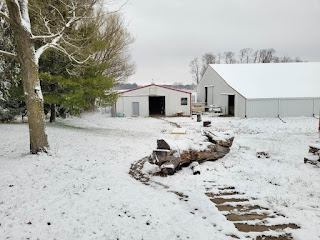There are two proposed rule changes that would change both the speed and difficulty at BN - Training, you can read about the rule proposals here.
https://www.usef.org/documents/ruleChanges/291-14.pdf
https://www.usef.org/documents/ruleChanges/292-14.pdf
Reasoning behind these changes is stated as
The changes for the cross-country speeds is to better relate the speed required to the jumping effort required. It has been observed that horses moving
forward at a reasonable pace for these levels have either had to slow down and circle or have gained speed faults.The change of speed at which speed faults are calculated is to have one meaningful speed that competitors can learn and remember.The change of heights of two obstacles in the jumping test is to start to relate the standard of US jumping to the World standard at these levels.Note: The heights for spreads will proportionally increase by 5 cm (2") as the spreads are related to the heights.
To more clearly define the progression of difficulty in the cross-country and jumping tests as a horse/rider moves up through the levels. In particular, the changes are recommended in order to prepare horses and riders to make the step from Training to Preliminary.
Evention Nation also has a blog post up about this subject.
Anyone who feels like this would have a negative impact on our sport should feel free to write Sheila Costello of the USEF scostello@usef.org to voice your opinion.
I did, and my email is as follows...
Hello, it has recently come to my attention that there is a proposed rule change which will affect the speed and difficult of Beginner Novice, Novice, and Training.
The proposed changes can be found here:
The reasons for the proposed changes can be summarized in a few sentences.
It has been observed that horses moving
forward at a reasonable pace for these levels have either had to slow down and circle or have gained speed faults.
forward at a reasonable pace for these levels have either had to slow down and circle or have gained speed faults.
The change of heights of two obstacles in the jumping test is to start to relate the standard of US jumping to the World standard at these levels.
As a lower level rider I strongly disagree with these proposed changes and the reasoning behind them. There is no valid reason to make lower level eventing comparable at the world standard. Lower level riders do not travel with their horses to other countries to compete, and international riders very rarely if ever import BN level horses to compete in Europe. Many upper level riders whom have their eyes set on international competition start their horses at Training level and above and do not use a horse's capabilities at BN as a barometer for international eventing.
Quite simply lower level eventing exists for lower level riders who will remain lower level riders or need a place to start, and lower level eventing is the backbone of eventing. Without levels to attract beginning eventers, or eventers who have no interest at increased speed or difficulty there would be no eventing. By increasing speed faults and difficulty at these levels you reduce the number of people who will enter into the sport and THAT is much more likely to affect the future of international eventing.
In addition, raising the speed limit to accommodate riders who are unable to slow down sounds backwards and potentially dangerous. Lower level riders should be learning how to regulate their speed on course, making sure it is neither too fast nor too slow. Riders on bigger stridedhorses have the option of rating their canters, trotting, or circling, all important skills to learn. Just because their horses CAN go fast doesn't mean they SHOULD go fast. Raising the speed faults also makes it more difficult to give a dangerous riding penalty, a rule which is in place to not only make sure people are jumping safely but that everything in between goes safely as well.
In summary, I believe that this proposed rule change is exactly what the sport does not need and I must voice my opinion against it.
Thank you for taking the time to read my opinions,
Sabrina Ashworth




No comments:
Post a Comment